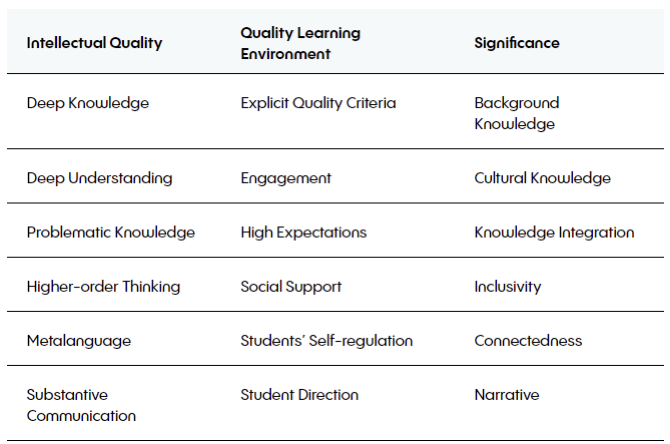Quality Teaching Rounds (QTR) is a high-impact professional development program developed by Laureate Professor Jenny Gore and colleagues at the University of Newcastle’s Teachers and Teaching Research Centre to improve teacher quality and engagement in the profession. Over the past two decades, QTR has been subject to five randomised controlled trials to test its impact on teachers, teaching practice and student academic achievement.
Defining and understanding quality teaching
Improving the quality of teaching has been an objective of education ministers, systems and schools for decades. The research is clear that the most important in-school factor driving student outcomes is teaching practice. But teachers and teaching are often talked about in media and by politicians in ways that fail to respect the complexity of classroom practice. Part of the problem is, as a profession, we have struggled to define quality teaching.
In much the same way as we would think about principles guiding the practice of law or the practice of medicine, the Quality Teaching (QT) Model is about the key principles that underpin teaching.
Standing the test of time
Developed in 2003, the QT Model is based on evidence of what makes a difference to student learning, namely:
- intellectual quality or challenge in every learning experience
- classroom environments that support student learning
- significant learning experiences that help students connect their schooling to the world beyond the classroom.
The 18 elements sitting beneath these three principles describe quality teaching in detail:

The QT Model provides the shared conceptual language for defining and understanding quality. But having a quality teaching framework is only a partial step in improving teaching practice. When the Model is combined with the powerful processes of Quality Teaching Rounds, that’s when real improvement occurs.
One initiative, broad impact
QTR is an approach to teacher professional development applicable to every grade, subject and stage of teachers’ careers. It requires minimal external input while producing rapid positive effects on teachers, their students and their schools.
Quality Teaching Rounds traditionally starts with two teachers (or leaders) per school attending a two-day QTR workshop.
Those teachers then join two more teachers back at school to form a professional learning community. Over a period of weeks, they observe each other teaching a whole lesson which they analyse and discuss using the QT Model to collaboratively refine their practice. Completing a ‘set of Rounds’ means the process is repeated on separate days until all four teachers have taught an observed lesson. Those teachers can then form new PLCs with other teachers to lead them through the process and ‘ripple’ QTR across a school.
This research shows that participating teachers significantly improve the quality of teaching and experience enhanced morale, collaboration, self and collective efficacy, and a stronger school culture focused on teaching and learning. Most importantly, we have gold standard randomised controlled trial evidence of the impact on student achievement - two months’ greater growth in mathematics and one month in reading compared with a matched control group.
Since 2019, more than 3,500 teachers from almost 1,300 Australian schools have participated in a QTR workshop, impacting at least 400,000 students.
Find out more:
New to AISNSW and want to receive AISNSW Education News updates? Click here to register, and select ‘AISNSW Education News’ on the Areas of Interest/Subscriptions page.